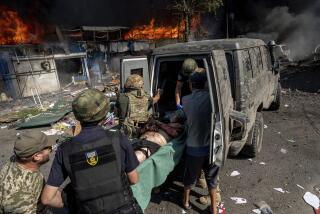Relieving the Silent Suffering
- Share via
If bloodshed and atrocity are the norm during war, can one man among many be held accountable for his actions? The Klaus Barbie trial in France has served to reanimate the moral dilemmas and to recall the physical horrors of World War II. In convicting Barbie of crimes committed while a Gestapo officer, the Lyon tribunal has begun the difficult process of putting these painful issues more peacefully to rest.
Barbie’s lawyers argued that his crimes were no different from the dozens, perhaps hundreds, of atrocities that other nations and individuals have committed since World War II. Yes, states still wage violent wars and many governments continue to oppress. That others can do wrong in no way mitigates or diminishes the severity of Barbie’s acts. Nor is he excused for merely following orders. Other nations and individuals were not on trial in Lyon--only Barbie stood accountable there. Barbie’s judges and jurors adroitly defined what was relevant. They prudently and compassionately judged the issue at hand.
Most important, the Lyon court reaffirmed the Nuremberg principles governing the prosecution of war crimes. Those principles classify crimes against humanity as offenses committed against civilians because of their race, religion or political beliefs. By indicting and convicting Barbie on such charges, his judges and jurors have reaffirmed the gravity of his offenses. They have also helped acknowledge, and perhaps have begun to relieve, the silent suffering of both victims and survivors.
More to Read
Sign up for Essential California
The most important California stories and recommendations in your inbox every morning.
You may occasionally receive promotional content from the Los Angeles Times.













